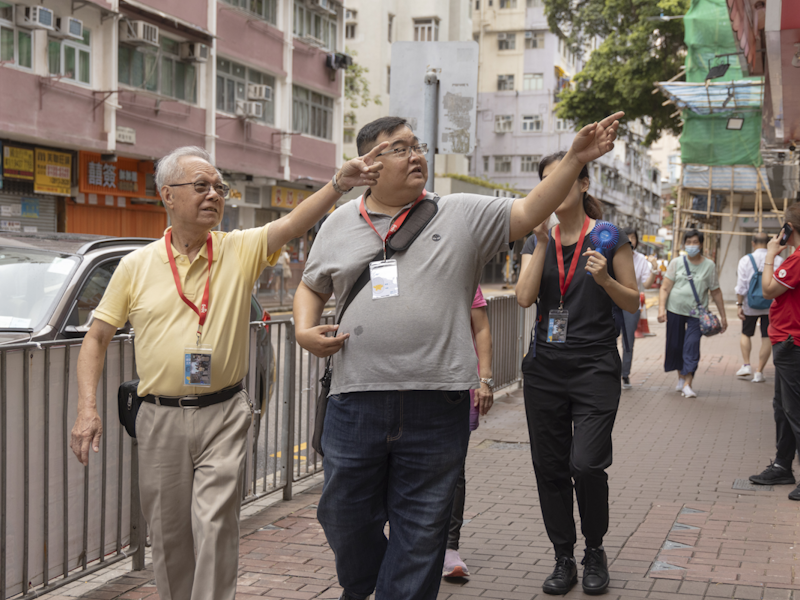Overcoming Loneliness
The World Health Organization has declared loneliness to be a “pressing health threat” worldwide, with health risks comparable to smoking up to 15 cigarettes a day. Many studies have confirmed that loneliness not only increases mortality risks, but also worsens health problems such as hypertension, depression, and anxiety. According to the “Elderly Mental Wellness Telescreening Survey in Hong Kong 2022” conducted by the University of Hong Kong, a third of older adults in Hong Kong suffered from depression, anxiety, or loneliness. Loneliness is clearly spreading in our community and is a cause of mental health issues.
Yet, little is known about the practice of Social Prescribing in Hong Kong. Since early 2024, MaD has been receiving funding from ZeShan Foundation and the Phillip K. H. Wong Foundation to launch the Social Prescribing Lab. This program tests how to alleviate loneliness in older adults through exploring community resources and linking them to individuals, going beyond conventional medically-driven frameworks. The program piloted in Tai Kok Tsui and Sai Ying Pun, where Link Workers of different backgrounds and professions were recruited and trained. They were paired with older adults to establish relationships of trust and to co-create Social Prescribing solutions that were individualized and user-centric. The Link Workers then accompanied the older adults to take part in the prescribed activities.
MaD’s localized model aims to go deep into communities and explore untapped resources for primary healthcare, as well as mobilizing manpower reserves (such as ‘mid-old’ retirees and university students) to relieve pressures on health and social care. Through the process of co-creation and experimentation with older adults, it also aims to build ‘meaningful connections’ that foster social capital, so as to support older adults in overcoming social isolation and improving their quality of life. Ultimately, we hope that this exploration of non-medical community resources could offer alternatives that complement the existing system, thus contributing to the development of community-based primary healthcare for all.
MaD Social Lab team,
Make A Difference Institute
The World Health Organization has declared loneliness to be a “pressing health threat” worldwide, with health risks comparable to smoking up to 15 cigarettes a day. Many studies have confirmed that loneliness not only increases mortality risks, but also worsens health problems such as hypertension, depression, and anxiety. According to the “Elderly Mental Wellness Telescreening Survey in Hong Kong 2022” conducted by the University of Hong Kong, a third of older adults in Hong Kong suffered from depression, anxiety, or loneliness. Loneliness is clearly spreading in our community and is a cause of mental health issues.
Yet, little is known about the practice of Social Prescribing in Hong Kong. Since early 2024, MaD has been receiving funding from ZeShan Foundation and the Phillip K. H. Wong Foundation to launch the Social Prescribing Lab. This program tests how to alleviate loneliness in older adults through exploring community resources and linking them to individuals, going beyond conventional medically-driven frameworks. The program piloted in Tai Kok Tsui and Sai Ying Pun, where Link Workers of different backgrounds and professions were recruited and trained. They were paired with older adults to establish relationships of trust and to co-create Social Prescribing solutions that were individualized and user-centric. The Link Workers then accompanied the older adults to take part in the prescribed activities.
MaD’s localized model aims to go deep into communities and explore untapped resources for primary healthcare, as well as mobilizing manpower reserves (such as ‘mid-old’ retirees and university students) to relieve pressures on health and social care. Through the process of co-creation and experimentation with older adults, it also aims to build ‘meaningful connections’ that foster social capital, so as to support older adults in overcoming social isolation and improving their quality of life. Ultimately, we hope that this exploration of non-medical community resources could offer alternatives that complement the existing system, thus contributing to the development of community-based primary healthcare for all.
MaD Social Lab team,
Make A Difference Institute







